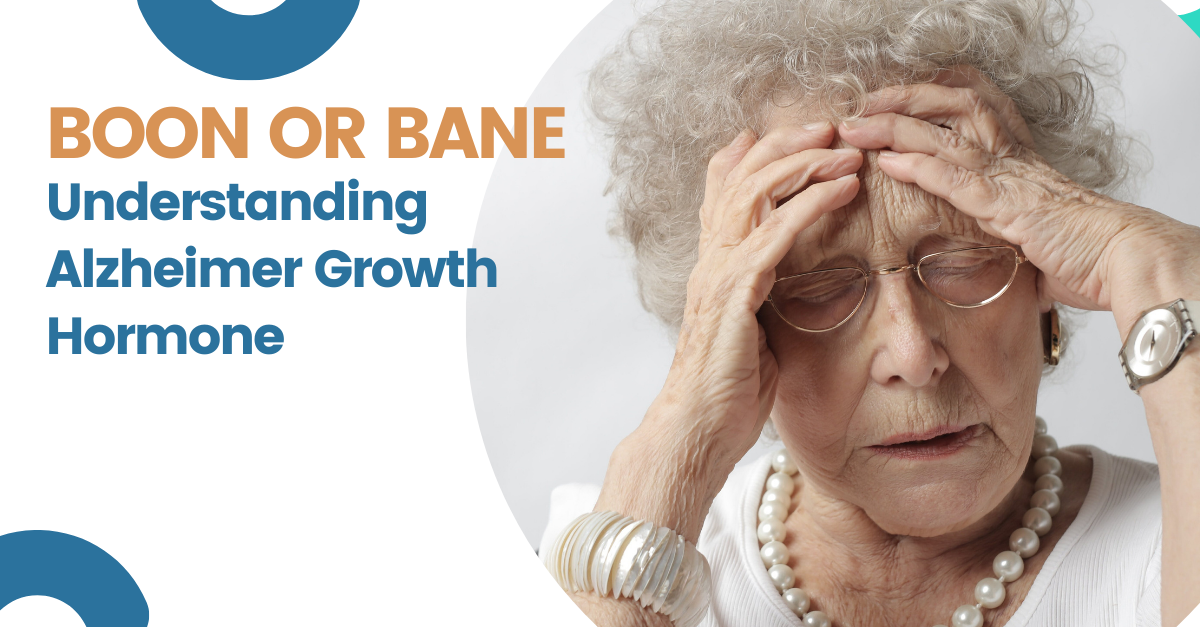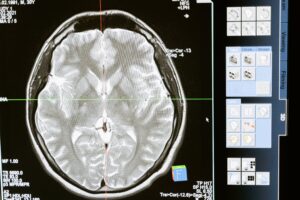What is Alzheimer Growth Hormone?
The connection between Alzheimer’s disease and Alzheimer growth hormone has become a source of both hope and concern. While research suggests potential therapeutic applications, a dark chapter from medical history highlights the risks associated with certain forms of growth hormone treatment. This article delves into the complexities of this relationship, exploring the current understanding, potential uses, limitations, and future prospects.
Alzheimer Growth Hormone: Hope or Hype? Can this hormone hold the key to unlocking a treatment for Alzheimer’s disease?
Alzheimer’s disease is a devastating neurodegenerative disease that affects millions of people worldwide. While there is no cure, there is ongoing research into potential treatments, including one that explores the role of growth hormone.
In this article, we will explore the complex relationship between Alzheimer’s and growth hormone, including:
- The current understanding of how growth hormones might influence Alzheimer’s
- The potential uses of growth hormone in Alzheimer’s treatment
- The pros and cons of using growth hormone for Alzheimer’s
- What companies and research institutions are doing to investigate this connection between Alzheimer growth hormone and Alzheimers
- How Alzheimer growth hormone might be used in the future
This is an important topic for anyone interested in learning more about Alzheimer’s disease and potential treatments. We hope you will find this article informative and engaging.
In the 1950s and 60s, some patients with growth hormone deficiency received injections derived from deceased donors (cadaveric growth hormone). Tragically, these batches were later found to be contaminated with misfolded proteins called prions, leading to the transmission of Creutzfeldt-Jakob disease (CJD), a fatal brain disorder. This incident not only highlighted the dangers of contaminated biological products but also raised concerns about the potential role of misfolded proteins in Alzheimer’s disease.
Emerging Hope: Targeting the Underlying Mechanisms
Despite the historical cautionary tale, recent research suggests that growth hormone may hold therapeutic promise for Alzheimer’s disease, but through entirely different mechanisms. Alzheimer’s is characterized by the accumulation of abnormal protein aggregates in the brain, including amyloid-beta plaques and tau tangles. Some studies suggest that growth hormone might:
- Enhance clearance of amyloid-beta plaques: Growth hormone may stimulate the production of specific enzymes that help break down amyloid-beta, potentially slowing its accumulation.
- Improve cognitive function: Growth hormone has been shown to enhance memory, attention, and processing speed in healthy adults and individuals with mild cognitive impairment.
- Promote neuroprotective effects: Growth hormone might support the survival and function of brain cells, potentially slowing down neurodegeneration.
Current Research Landscape for Alzheimer Growth Hormone:
Several companies and research institutions are actively exploring the therapeutic potential of growth hormone in Alzheimer’s disease. Some notable examples include:
- Eli Lilly and Company: Investigating the efficacy and safety of recombinant growth hormone (synthetically produced) in patients with mild to moderate Alzheimer’s disease.
- Annovis Inc.: Developing a longer-acting form of growth hormone using novel delivery technologies.
- Neurotrope Bioscience: Exploring the use of a specific fragment of growth hormone called TA-GH for its neuroprotective properties.
Crucial Considerations and Future Outlook:
While the potential of Alzheimer growth hormone for Alzheimer’s treatment is encouraging, several key points remain:
- Current research is still in its early stages. More clinical trials are needed to confirm the efficacy and safety of this approach.
- The optimal dose, duration, and timing of treatment need to be carefully determined.
- The potential risks, including potential side effects and the possibility of unintended consequences, must be carefully evaluated.
Looking ahead, the future of growth hormone in Alzheimer’s treatment likely involves:
- Development of more targeted and personalized approaches: Tailoring treatment based on individual patient characteristics and disease stage.
- Combination therapies: Combining growth hormone with other drugs or interventions to enhance its effectiveness.
- Continued research on the underlying mechanisms: Gaining a deeper understanding of how growth hormone interacts with the Alzheimer’s disease process.
While the path forward remains cautious and requires further research, the exploration of Alzheimer growth hormone as a potential therapy for Alzheimer’s disease offers a glimmer of hope in the fight against this debilitating condition. Remember, this information should not be considered a substitute for professional medical advice. Always consult with your doctor for diagnosis and treatment of any medical condition.
Video on Alzheimer Growth Hormone:
External Resources:
The Guardian:
Alzheimer’s can pass between humans in rare medical accidents, suggests study: https://www.theguardian.com/society/2024/jan/29/alzheimers-can-pass-between-humans-in-rare-medical-accidents-suggests-study
Websites:
- Alzheimer’s Association:
- National Institute on Aging:
Disclaimer: I am not a medical professional, and this information should not be taken as medical advice. Please consult a qualified healthcare provider for any questions or concerns you may have regarding Alzheimer’s disease or growth hormone therapy.


